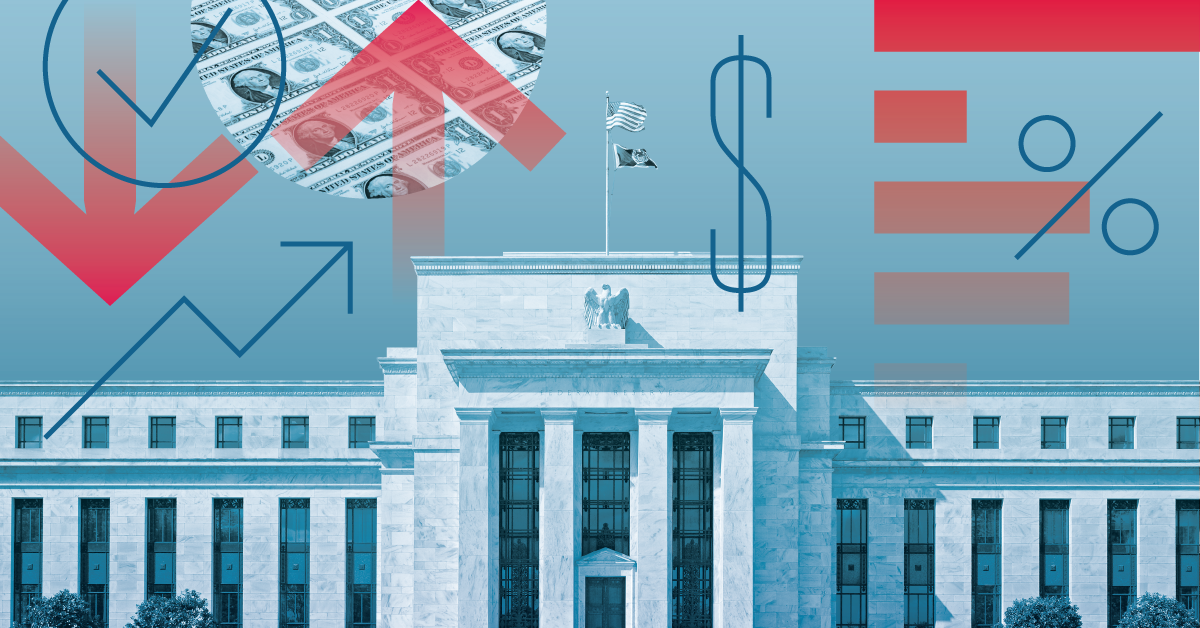Christine Benz: Hi, I'm Christine Benz from Morningstar. Investors often believe that strong economic growth will fuel strong stock market growth. But some recent research casts doubt on that idea. I sat down with Vanguard's chief economist Joe Davis to discuss some recent findings on this topic.
Joe, thank you so much for being here.
Joe Davis: Thank you, my pleasure.
Benz: You looked at a lot of different metrics in an effort to determine which of those are most predictive of what the stock market might return in the future and which are least predictive. Let's start with those that have the most predictive ability, and you didn’t find anything with terrific predictive ability, but generally speaking valuation tends to be the best predictor.
Davis: Clearly and we looked at more than a dozen. [There is] very little predictability at all across any of those measures in the short run, a one- or two- or three-year period. But if we look out five and importantly in this study 10-year period, which is area of focus for strategic asset allocation, valuations clearly rise to the fore. We looked at a number of valuation metrics, particularly those that smooth earnings by various formulas. Popular one in the industry is the so called cyclically adjusted P/E or the…
Benz: Schiller P/E.
Davis: The Schiller P/E, the P/E 10, and surprisingly, it may even be surprising to some that, that predictability for the so-called Schiller P/E is similar to just using earnings of one year, one year ago. And that’s important today because those two measures are suggesting a different outlook for equities, because a gap [as grown between those two measures].
I think importantly what [Vanguard does] is look at a basket of valuations, and when you put that altogether they are more normal than abnormal for the current state. But clearly valuations give you about 40% probability of ascertaining what the return will be over a five- or 10-year basis.
Benz: So 40% on its face doesn’t sound great, but that is better than a lot of the other metrics that you examined. Let's talk about things that a lot of people sometimes use to inform their market outlook, gross domestic product growth and the strength of the economy, how about that one?
Davis: It really is a source of pride. As the Vanguard chief economist, I spend lot of my time telling investors that I think too much premise is placed on economic statistics, particularly for long-term investment forecasts, and consensus growth expectations, earnings-growth expectations, trailing or prospective forward [returns] have a very poor association with future returns.
Even other measures that are commonly used or referred to in the industry such as the Fed model, which is the difference between say the S&P 500 dividend yield and the 10-year Treasury, it’s a relative measure of, say, relative attractiveness of equities versus bonds. That also has a very poor predictability, effectively the same predictability as measures such as weather…
Benz: You looked at rainfall, too.
Davis: We looked at rainfall, just as a reality check. So clearly those measures. And even some measures such as debt/GDP ratio, which some have referred to historically in the United States, the higher debt/GDP ratios have actually been associated with stronger stock market returns because of World War II. Again we won't anticipate that going forward, but I think we do have to be careful of what we anchor on in terms of forming reasonable stock market expectations.
Benz: So the GDP growth one, in particular, the strength of the economy might seem counterintuitive to people because they assume, well if the economy is strong, that means that stocks will be strong. But why wouldn't that be the case?
Davis: That's a great point. I think the biggest factor is that the stock market itself is a leading indicator. So the stock market at any moment in time is trying to discount or evaluate what the growth prospects are not only, for individual companies, but then in aggregate the earnings and hence growth of the economy. We've also shown in past research the correlation across countries between stock market returns and GDP growth, and again the conventional wisdom is that the higher the growth rate, the higher stock returns. But as our research have shown there is effectively zero correlation over long periods of time between GDP growth and stock market returns.
So, the greatest example of the past few years is China, which has been one of the strongest growing economies. It's also had among the worst stock market performances. Conversely, [look at] an area such as the United States. Our recovery has been lackluster at best and yet the financial markets have performed fairly well within the past three or four years. So again, much more important than growth per se is the price we pay for growth things such as valuation.
Benz: Let's talk about where you are coming out in terms of your market forecast. Going forward you use a modeling system with a lot of different inputs to help arrive at what is a reasonable forecast for equity returns. Let's talk about what that it is, and it is quite a broad range, currently 4%-2% roughly.
Davis: Yes, and so it is wide. But we certainly are not apologetic for that fact. You will not find point forecasts from Vanguard, but there is a reason why. As you mentioned, Christine, in the research, valuations give us some sense, some anchor in terms of what returns may be in the future, but less than half of the times these variations in stock returns over time are explained. So, by nature we're going to have a distribution.
But that central tendency is actually closer to historical averages in the high single digits, than perhaps some would suspect given the economic outlook. And so again, it's one of a formative outlook for the equity risk premium and the equity markets, but I think we also have to be careful or mindful that this is the future we're talking about, so treat it with the humility it deserves. And so there is always going to be a wide distribution. I think it would be misplaced otherwise to relegate an outlook for the stock market that would be one number.
Benz: So that 4% to 12%, is that for the next decade ahead?
Davis: For the next decade. So, there is a central tendency; it's in the high single digits. But yes, they get greater confidence in the outlook the wider that number is going to be. It's wider than say for bonds, where the yield to maturity is a decent proxy of longer-term returns.
Benz: And that's not good right?
Davis: It's not good, but the probability of stocks outperforming bonds is certainly not a 100%, but it is formative. And this message is our long-held view for the past several years. But that comes with volatility. And again, our modeling and our framework tells us very little of what the stock market will do over the next six to 12 months. It really has some modest predictability over these five- or ten-year horizons. And it's something that, again, would not be one that would suggest that we can be very active in our approach because the predictability is not so great, but it does give us a guidepost as to what are reasonable expectations when all of us are trying to formulate an asset-allocation decision.
Benz: Joe, thank you so much for sharing your insights.
Davis: Thank you.






















